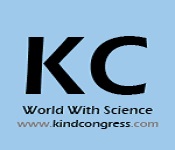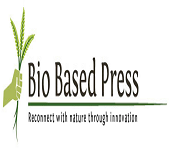Scientific Event Organizer and the World Class Open Access Publisher ConferenceSeries LLC Ltd, announcing the International Conference on Applied Microbiology on November 11-12, 2020 at Tokyo, Japan. The main theme and the essence of conference is “Developing competencies through microbial species.”. This international conference is conducted in order to provide a world class platform for educators, new researchers, and learners to present and discuss the most recent innovations, possibilities,and concerns regarding the field of Microbiology.
This international conference on Applied Microbiology will comprise an informative, productive and valuable conference program which will include leading keynote speakers, poster presenters and session speakers who will be presenting and sharing their knowledge on the topics related to Applied Microbiology.
Applied Microbiology is a branch of science that deals with the applications of microbes and the knowledge about them. Its application includes vast subjects including Environmental microbiology, industrial microbiology, ,food and dairy microbiology, Bioremediation , Medical and pharmaceuticals microbiology and the approaches related to all these .
So, to gain all this knowledge we cordially invite you to join us at the Applied Microbiology 2020, where you will gather amazing ideas and have a great experience with experts from around the world. All the important members of Applied Microbiology-2020 organizing committee look further to meet you at Tokyo, Japan.
Why to attend?
Applied Microbiology 2020 is going to be a great platform and hub of opportunities not only for researchers and scientists, but also for experts, policy makers, stakeholders and students. such a Conference gives priceless chances to sharpen your saw by learning new skills in a different environment and to connect with attendees from different perspectives and views, learning from them, leads to new relationships, and strengthen existing ones. Such international Conferences pave the way for scientific cooperation by meeting and connecting with researchers from different regions.
Target Audiences
-
Researchers & Fellowship
-
Students & Professionals
-
Health Care Associations & Societies
-
Health Care Professionals
-
Biomedical companies
-
Food & Beverage industry
-
Dairy and food sector industries
-
Genetic engineering and Biotechnology researchers
-
Microbiologists
-
Bacteriologists
-
Virologists
-
Medical Microbiologists
-
Mycologists
-
Pathologists
-
Pharmacists
-
Epidemiologists
-
Research Institute
-
Industrial Business Entrepreneurs
Track 1: Applied Microbiology
Applied microbiology deals with the applications knowledge of microbiology i.e., the applications of microorganisms. It involves the exploitation of microbes for the production of specific product or use.Genetic engineering is one of the approach that is applied to the basic microbiology and turns up the basic microbiology into applied microbiology.Applied microbiology’s goal is to achieve a sustainable environment along with human welfare.
Track 2- Environmental microbiology
The composition, physiology and interaction of microbial communities in the environment are termed as environmental microbiology.Through these patterns of microbes, the nature of different possible environments in which they are situated, the methodologies used to monitor microorganisms and their activities, their effects on human and negative as well as positive aspects could be easily understood by this.
Track 3 – Medical Microbiology
Medical microbiology deals with the study of microbes that are pathogenic and play a role in human illness. For that it includes the study of pathogenesis, epidemiology, disease pathology and immunology of the one suffering from illness. Also, it enlists the applications of microbes in medicine.Medical microbiology begins with the immunesurveillance that focuses on the body’s response to invading microorganisms.
Track 5 –Industrial Microbiology
Industrial microbiology applies microbial science to create high value industrial products that are valuable to humans. Microbes used industrial processes have the ability to produce chemical compounds that couldn’t be synthesized in laboratory or it takes great difficulty to be synthesized. Also, some chemical products can be synthesized more efficiently and cheaply by the action of microbial species. Use of microbes also tends to increase the product yield.
Track 6 – Microbial Biotechnology
Application of scientific and engineering tools and principles to the processing of material by microbial species to create useful products and processes. Microbial species that are being used may be native isolates, genetically modified microbes or laboratory selected mutants. Microbial biotechnology enabled with genomics lead to breakthroughs such as improves vaccines and better disease-diagnostic tools and improves microbial agents.
Track 7 – Food and Dairy Microbiology
This deals with the study of Microorganisms that inhibit, create or contaminate food and dairy products. The main goal of food and dairy microbiology is to use microorganisms to enhance or produce new food products and to study the disease or infection causing microorganisms and their prevention.
Track 8 – Agricultural Microbiology
This field of applied microbiology explores the various aspects of the plant microbes such as genetics, physiology, molecular biology , virulence and pathogenicity. It deals with the study of infectious agents of microbes, resistance and improvements of the agricultural crops with the economic importance and beneficial aspects of normal agricultural flora.
.Track 9 – Forensic Microbiology
Forensic microbiology focuses on the medicolegal and criminal investigations by trace evidence analysis. The study is used as weapon against bioterrorism and standup to the heavy scientific scrutinity. Rapid identification and subtyping of infectious agents can be done.
Track 10– Trends in cellular Microbiology
Cellular microbiology deals with the microbes that are pathogenic and attempting them to use as tools for cell-biology research, and to use cell-biology methods the pathogenicity of microbes should be known. It is the combination of cell biology and molecular biology. It deals with cell cycle, metabolism, signal transduction, anatomy and physiology. It also studies the microbes that are transfiguring towards antibiotic agent.
Track11 Bioremediation
The use of naturally occurring microbes, effective microbes, GMOs, or deliberately introduced microbes to consume, breakdown and remove environmental pollutants, contaminants and toxins to clean a polluted site is the essence of bioremediation.It’s an ecofriendly approach of acquiring a pollution free environment.Major environmental issues such as oil spills or contaminated groundwater. It could be done in either of the way “insitu” or “exsitu”. This process leads to the stimulation of microbial growth that leads to the utilization of pollutants.
Track 12 Microbial physiology and biomolecules
To maintain the identity of living system, living organisms continuously experiences high levels of metabolic activities inside. Such metabolic activities includes huge number of chemical reactions that happens vigorously which changes the chemical species from one to a different thereby leading to energetic transactions that leads to biochemical functionalities. Microbial physiology has its applications in both fundamental research and in industries. Metabolic engineering in microbial physiology and biomolecules can lead to substantial research and functional genomics.
Track13 Microbial gene technology
Microbial gene technology deals with the applications of genetic engineering into microbiology. Different techniques are used for Genetic engineering of microbes which studies the genotype of microbial species and its gene expression and gene manipulation or modification is done that leads to recombinant model of microbes.Manipulation and modification is done as to produce desired traits in microbes which could turn up to human and environment welfare.
Track14 Microbial Biochemistry and molecular immunology
Cellular and Molecular immunology deals with cellular acivities in experimental or clinical situations. It is the interactions among cells and molecules of the system that contributes to the popularity and elimination of pathogens. The response to pathogens consists by the complex interactions and activities of the massive number of diverse cell types involved within the immune reaction.
Track15 Advances in biomaterials
Bio materials are those substances or components which are designed to associate with the natural frameworks for clinical applications. Microorganisms can be used in the production of such materials and hence such materials are known as biomaterials.
Market Analysis
The growth in applied microbiology market is because of the rapid increase in prevalence of pathogenic diseases, growth in discovery of mutating and adapting microbes, and the growing need for speedy microbiological testing methods. In 2013, the microbiology testing market accounted for 5% in the global IVD market and contributed $3556.7 million in 2013 to the IVD market, and is estimated to reach $4737.2 million by 2018, at a CAGR of 6.2% from 2013 to 2019.
Market Research
Market research is really important for the industrial market development and is continuously in demand. In 2018, the delivery of new editions of reports on Microbiology Testing in the Global spurt is reported .
Global Survey:
The applied Microbiology Labs has a whole array for diagnosis of serology, virus culture, and blood culture. This method is used for the detection of influenza viruses as well as a number of other diseases. Testing for clinical microbiology is indispensable for identification of bacterial, fungal, and parasitic infections as well as for prevention of epidemics. It also helps in the clinical management of patients. The market of rapid diagnostic testing is sought the most after in the microbiology industry this is because it provides results in less than 30 minutes. Therefore, a faster turnaround time (TAT) and frequent and efficient results are the major factors that will drive the microbiology market.
There has been an increase in the number of infectious diseases across the globe. The factors such as the rise in incidence of HIV and tuberculosis as well as sexually transmitted diseases and respiratory disease such as influenza like Europe and America will drive the microbiology market.









